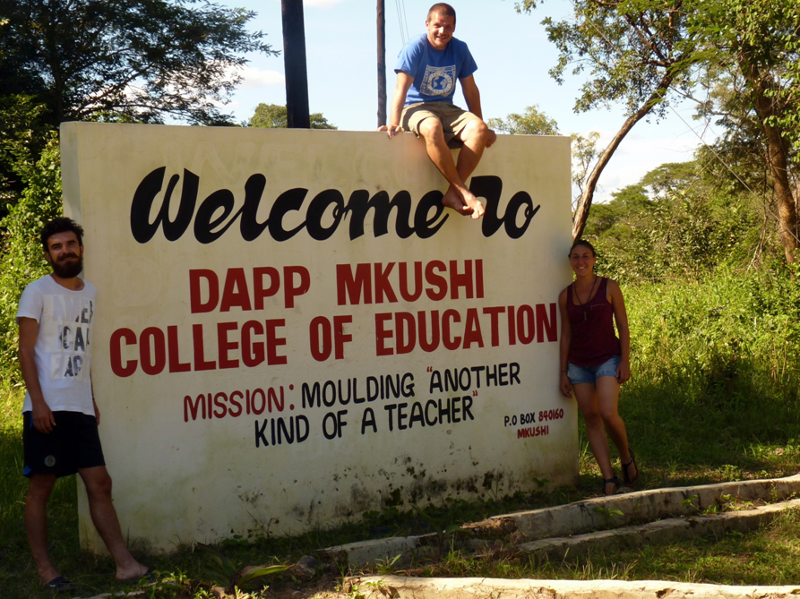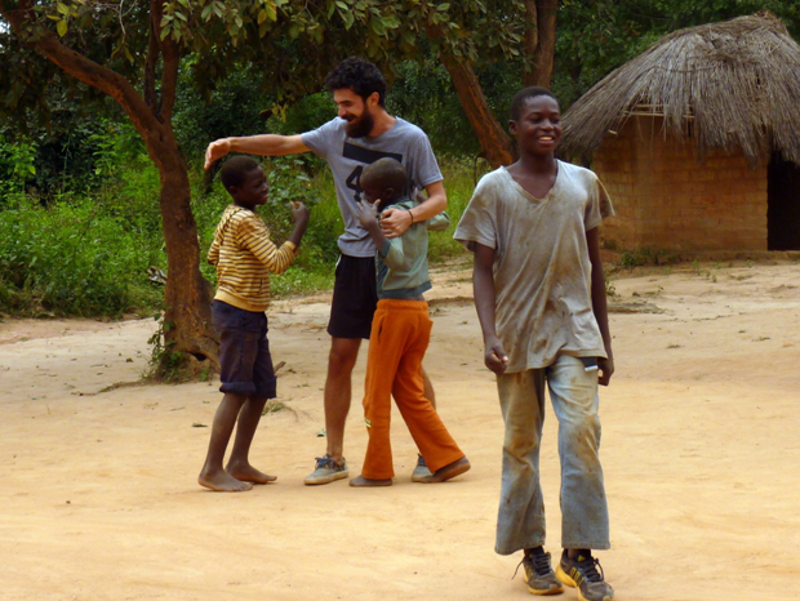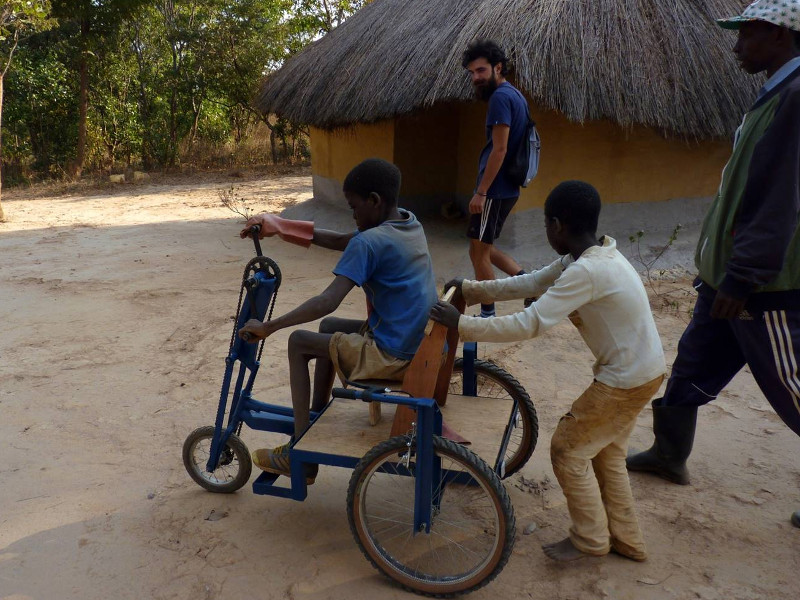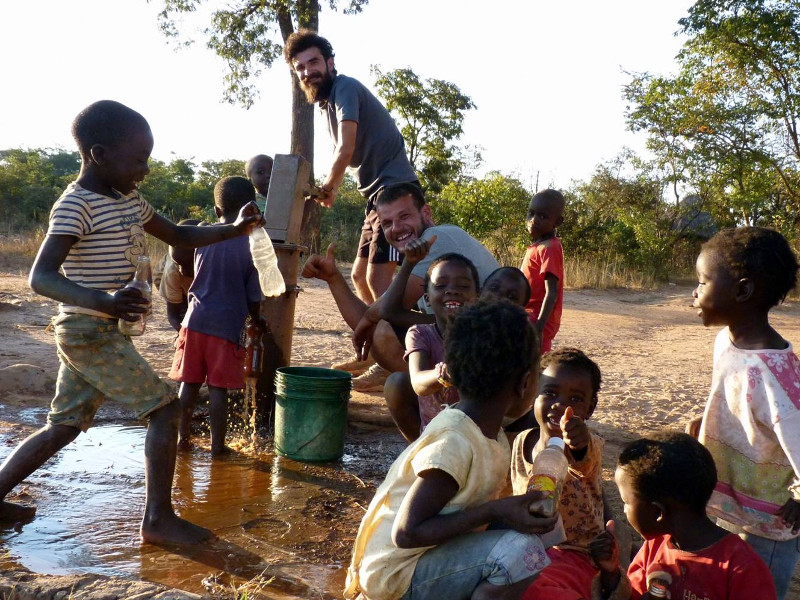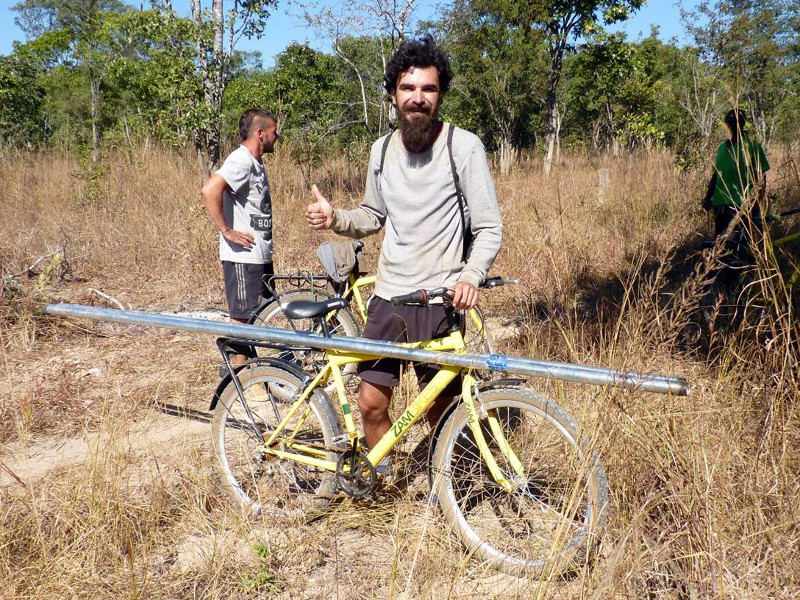Dan's Story
 We don’t realise how lucky we are because we just turn on the tap and we have how much water we need.
We don’t realise how lucky we are because we just turn on the tap and we have how much water we need.
1. Who is Dan Mahulet?
He is a simple 27 years old Romanian who graduated university of mechanical engeenering, and worked 4 years in retail plus on cruise ships and recently he took the decision to go to Africa to do development work.
2. Other young lads in your age are looking to build a career or to party everywhere. Why did you take the decision to go in Africa?
Until one year ago I had a very nice job: I was working on cruise ships and in the same time I was travelling to some amazing places plus I had a very good monthly wage. But, I realized this was not making me really happy. So I start to look for other opportunities which can make me to feel real happy.
First option was volunteer work. I searched for organizations which are involved in work with the poor people from Africa, and I wanted to join them in this battle. The name of the organization I found is College for International Co-Operation and Development from England.
3. What was your purpose when you went to Africa?
Honestly I didn’t have a plan when I went to Africa. After our training and preparation, together with my team I arrived in one project which is a college who prepares young teachers for the primary schools in rural areas in Zambia. And we knew we have two options: to be teachers in the college or to work with the communities around the small town Mkushi. We decided to work with the communities because they needed more help and we could be more useful and to leave something behind us.
We didn’t make a plan before because we wanted first to see how they live and what they need the most. As soon we arrived we start to visit the communities and to make many meetings leaders and members of the villages. As a result of this meetings we decided to help them in the biggest problem, the acces of clean water.
But we didn’t just us to repair their water pumps, we wanted to work together with them and they to contribute with man power and some percentage of the costs. In this way they will have the feeling of ownership and responsability, so they will take care better and if the water pumps will break again, they will have the knowledge to repair them.
4. What was your impact in Zambia? Which were your achievements?
- 7 water pumps repaired, more than 2500 souls will have clean water.
- One wheelchair with 3 wheels for a disabled kid.
- 6 benches for a school where the kids were sitting on the floor
- One community market.
We left a huge footprint for this communties. At the beginning they didn’t trust us, but we proved we are there to help and work with them. We made also a video with our succes:
5. Which is the the most memorable experience from the adventure in Africa?
For sure the best moment was when we managed to repair the first water pump in Chullu Village, it was the most important one because it was where we built the Katongola Community Market. This happened in April, together with my team, Marta from Spain and Danail from Bulgaria, none of us ever repaired a water pump, actually it was the first time when we saw one, but we knew this is biggest problem of the communities and we wanted to give our best to repair some of the pumps.
The government installed water pumps in different villages 15 years ago, but nobody took care of them, no maintainece program due lack of funds. Because of this most of the water pumps were not working, some of them had even 10 years of not working.
The first water pump was the most difficult one to repair. We worked hand by hand with the locals and we had luck, one of them had the knowledge of repairing a water pump. After we had to stop the repairing process because the dark came, when we opened again the water pump was the biggest shock, the pipes were not there. The thread of the last pipe broke and all 8 pipes felt down in a black hole. After 2 weeks of trying all the possibilities how to fish the pipes back, we managed somehow to do it with a handmade hook. This was the happiest moment of my period in Zambia, when i saw the reaction of the people having clean water again. Now hundreds of people from the Chullu Village they will have acces to clean water and not being forced to walk kilometers for water at the river.
6. What are the problems in Zambia?
People in Zambia are missing many things that Europeans have access to very easily: clean water, food, education and much more.
The biggest challenges are in the rural areas. In the cities the people have access to the basic needs. We visited for a short time the capital Lusaka or the city Ndola – with big grey buildings which reminded me of my Romainan Bucharest in the communist time.
But in the rural areas the real problems start to appear: people drink, wash or cook with water from the river and electricity doesn’t exist. We lived 2 weeks without water because the pump in our campus got broken. We had to carry our own water for showering or toilet, just in that moment we realized how hard is to live without water in your house. We don’t realise how lucky we are because we just turn on the tap and we have how much water we need. When was the last time you had to carry your own water?
7. Which was the most shocking experience?
We went in one morning with the headman of Chullu Village to prepare to soil for the bricks. We had to dig and to mix it with sand from ants to be ready to mold the bricks for the toilets on the market. We were there for 3-4 hours digging and it was very hot outside, we had water with us in our bottles and we were taking a sip every half in hour. When we offered to him, he refused completely, and his answer was: it too early to drink water! We were shocked, how come? It was 12 in the day and to be too early to drink water?
8. What are you plans for the future?
I have joined our promotion office to help our school in bringing more students. We need more and more volunteers ready to go to Africa or India to work with the people, and to help improve their lives.
At least one year I want to do this, doing meetings and presentations in different countries in Europe. After my dream is to go back in Africa for a long-term project where I can leave my footprint and help more people, the 6 months project was just the warm up!
My vision and our organisation's vision is to expand our work in Southern Africa, opening more projects and to work together with the locals for a better future.
9. What was your image for Africa before going there and how do you see Africa now?
I had the image from media: extreme poverty. But our media they take things on the extreme. In Zambia where I was, they often don’t have clean water, electricity or education, the people are not dying on the streets. They adapt and live like how we were living 100 years ago. They are working every day on the fields, „nshima” (polenta) is their staple food, eating 2-3 times per day with some vegetables next to it. They have their comfort zone, even if it’s zero comfort zone, for them it’s ok. But with our help they can improve their lives. People are hard workers just they need iniative and to be more trustful in their power, and with a bit of help we can make great things.
Anyway, I am telling you, they are smiling more than us, even if they have nothing!




